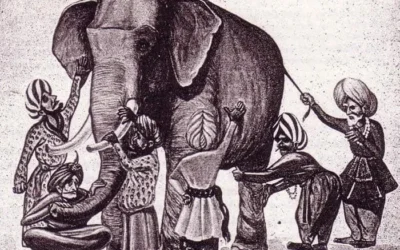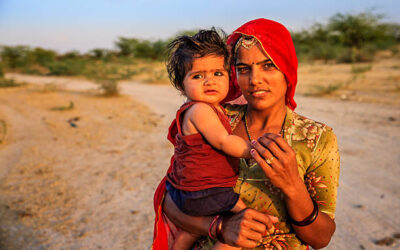As a part of India Fellow, I lived and worked in Kashipur in Rayagada district of Odisha. Here are a few highlights from the 13 month journey:
Food
Odia food is rice with other items. No meal is complete without rice. I used to get my meals from a mess for INR 2000 a month. Three meals a day and chai. Breakfast is Poha or Suji on most days. Sometimes, there is no breakfast prepared; so you put the raw puffed rice in water, wait for two minutes, remove the water, add sugar and eat. Rarely will you get milk powder to add to the raw puffed rice. There is chai until there is Amul Spray milk powder. For the rest of the month, there is Nali cha, i.e. Black Tea with ginger. Idli or Puri with aloo mutter tarkari (sabji) is a top-tier breakfast that can be expected once or twice a month.
Lunch is always rice, accompanied by dal and a sabzi or either of them. Papad and/or salad will get you excited. Same goes for dinner but on Wednesday and Sundays, there is Egg Curry or Egg bhurji. At the end of the month, there is kheer.
Options to eat outside are Dosa and Idli (only during morning time), Bara (medu vada), Chowmein, Jalebi, Singda (Samosa), Piaji (Onion Pakoda), Egg roll, Egg Bhurji and Omelet. If you plug in your electric cooker, there is a high possibility that the bulbs will blink, the fan will get slower and there is a power cut within five minutes. The only way to cook is with wooden sticks. Be prepared to get itchy in your eyes during the process. Cooking paneer once a week is worth it. The absence of cafes and the presence of three hotels will make you stick to the mess or roadside food.
You have to try Pokhal, Pita, Mandia soup if you are in rural Odisha. Plucking vegetables from the farm and cooking them gives an ecstatic feeling.
People and conversations
Unknown people will smile and talk to you. They will ask “Bhola achi” (going good?) or “Kwade jaucho bhaina” (where are you going, brother!). That’s how you meet new people and make friends. Conversations beginning with the above two phrases go on even if you are meeting someone for the first time. In these interactions, people will ask you your name, age, marital status, salary, and if you like their area. More often than not, I’d answer and ask back the same questions.
If you know someone, you don’t need to knock their doors before entering. If you know them really well, you can even unlock their doors and get in when they are not around, and the keys are somewhere near. Likewise, you can expect people to come and wake you up at 5 am. Days start early and end by 10 pm. Afternoon naps are common, regardless of the day.
If you are bored, just go to any village and be there for five minutes. Someone or the other will approach you. They would know that you are an outsider and from Agragamee (the only NGO working here for nearly 40 years and has people coming from other parts of the country). You don’t even have to introduce yourself if you are going for a survey, because people know the staff from the organization, their name and village as most of the employees are local. People will sometimes pay for your chai, offer you fruits and vegetables from their farms, give freshly made pita to eat. They are welcoming and warm, especially to outsiders.


Electricity, cellular network, water and nature
Power cuts are common. I got used to it. A lot of time, there’s a high chance that the power has gone off only in your room. Check other rooms or call your friends on Agragamee campus. The longest power cut in my room has been for 1.5 months. But the adjoining building has the supply. Power cuts for 1-2 days in the entire area are common. Having a Jio tower on campus is a boon. But it might shut down as all the villages do not have network, or only have one operator like Airtel or BSNL. Vodafone and Idea do not exist in Kashipur block.
Water supply cuts are also common but the hand pump always has water. Instead of filling and carrying buckets every day, you can wash your clothes and take bath at the pump itself. It saves a lot of time and energy and is just a lot of fun. Living in the middle of nowhere means no traffic or any disturbance.
You are surrounded by green forest and farms for at least 2 kilometres. The only sound you hear is of crickets at night. Air is as fresh as it can be. There is no plastic waste around. You will find cows, goats, and sheep around. Farmers take their animals for grazing in the evening. A lot of villages are not connected with proper roads. Sometimes you have to trek up to 3-4 kms to reach these villages.




Weekly bazaar
Every Wednesday, there is weekly bazaar which is around 3.5 km away from the campus. Plan in advance what you have to buy and leave around 8 am. You will surely get a lift as it’s a busy day. No buses or auto rickshaws are there but hitch-hiking is the way to go. If there are three people on a bike, it does not mean that they will resist picking you up as well. On some days, when you are riding a bike, it will be a moral obligation to pick other people. Everyone is trying to get somewhere. You will make new friends in the process.
SBI is the only bank and it can take about an hour just to get in on Wednesdays. Monday is also a busy day at bank. On other days, you can quickly get your work done.
Festivals, culture and more
You do not need to know people if you want to attend a wedding or celebrate a festival. You can join kids doing Demsa (local Odia dance), eat the feast, enjoy and feel welcomed. In fact, you will be treated specially as you are not a local. You might also find the groom working at his own wedding. No fancy dresses. I once saw a groom in a plain pink T-shirt and track-pants in his wedding. Apart from Holi, Ganesh Chaturthi and Diwali, local festivals are also celebrated. However, celebrations were a bit mellowed down this year due to the pandemic. Drinking Salba and Moholi (local alcohol) is common. Both of these are procured fresh out of the trees.
While adjusting to the new life in Kashipur was challenging at first, it all became a way of life eventually. Living in modest conditions made me realize that you do not need much to survive. In the end, what you want to do is more important since it takes most of your time, as it should.





0 Comments